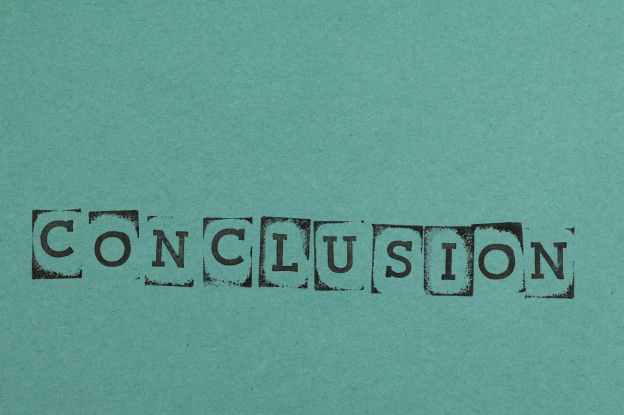Written by Write Site Staff
When writing most papers, you will include an introductory paragraph, the main body paragraphs, and the conclusory paragraph. The conclusion is used to complete your paper. Without a conclusion, your paper will seem unfinished, like a story without the “happily ever after.” Having a strong conclusion will bolster your paper’s purpose while giving readers a satisfying ending.
Goals of a Conclusion
Emphasize your thesis.
Rephrase your thesis in a new way. This refreshes the reader’s memory about your main point and allows you to show that you have proven your thesis over the course of your paper. Many writers choose to restate their thesis for the first sentence of their conclusory paragraph.
Synthesize your argument and main points.
Synthesize – don’t summarize. You do not need to recap your entire paper point by point. Instead, synthesize the paper’s main points; show your reader how the points you made, and the support and examples you use to develop those points, fit together.
Succinctly answer the question “So what?” or “Now what?”
Why should readers care about your argument? What does your paper add to the discussion about your topic? Where should readers go from here? This is your opportunity to elaborate on the significance of your findings, suggest larger implications now that you have synthesized your main points, and even propose a course of action or questions for future study if appropriate.
Provide a sense of closure.
You can provide closure and make a clever exit by leaving the reader with a strong closing statement. This can be tricky because, depending on the paper, this may be the only piece of personal input you have. In an informative essay, your closing statement will be your only personal input on the subject – mostly being what you feel about the subject in accordance with your main points. In an argumentative essay, it will be your point of view – on which side of the argument you fall. You want to leave your reader thinking.
One technique for restating your thesis with different language is to use a complex sentence for your thesis statement the flip the subordinating and independent clauses when you restate it. You can also use another subordinating conjunction that shows the same basic relationship between the two clauses.
For example:
- Original thesis: Most critics agree that the Harry Potter films were really well cast, although some purists believe that the films did not do justice to Ron’s character.
- Restated thesis: Whereas some purists believe that the Harry Potter films did not do justice to Ron’s character, most critics agree that the Harry Potter films were really well cast.

